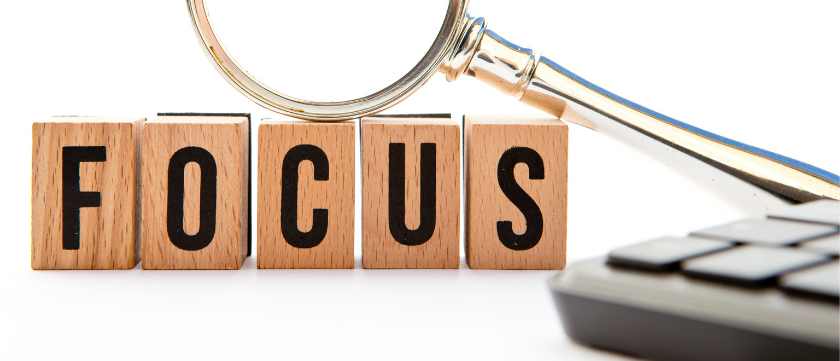I can’t remember exactly where I was when I heard that China reported the first coronavirus death, but I was in an airport somewhere in North America. I believe it may have been Newfoundland, but who knows. I was on another marathon tour of travel for work. I remember thinking that this sounds like another outbreak of SARS. Admittedly, I wasn’t terribly concerned, but I recall washing my hands extra-long throughout the day, and paid special attention to not touching my eyes, nose or mouth, a practice that I have grown accustomed to over the decades of travel in airports.
A few weeks later, I woke up in New Orleans with the worst sore throat that I could remember in decades. I muddled through speaking 6-hours a day throughout that week, elbow bumping people instead of shaking hands. People were not concerned, as they continued to walk into my personal space to ask questions and share stories even though my nose was red and I was clearly congested. I must have gone through 4 boxes of Kleenex in 2 days. I was a mess, but I made it through. I woke up in Columbus on March 6th and fell right back asleep and did not get out of bed for 3 days. I started a self-quarantine March 6th, 2020 and have been home ever since. I remained sick for the next 4+ weeks.
I never thought that a year later I would still be working from home. As of the date of writing this paper, more Americans are dying of Covid-19 than U.S. soldiers died each day in World War II. Other than trips to the grocery store and to visit my mother, I am restricted to home. While I feel that I am tolerating this situation fairly well today, there are days that I do not.
On bad days, and sometimes bad weeks, I am experiencing many of the same problems as so many others similarly situated - problems with:
- Sleeping
- Focusing
- Doom-scrolling/surfing.
- “Monkey mind.”
- Mild depression.
- “Cabin fever.”
Sadly, many people are having even more severe problems. Substance abuse is up ... way up! Non-prescribed Fentanyl use is up 32%. Drug-related overdoses are up 18%. Unemployment ... suicide ... deaths of friends and family.
In researching ways to improve focus and sleep during the pandemic, I ran across some interesting research. Many of the distraction and time management techniques that I have been teaching for years (and have included in my new book Tame the Digital Chaos) are heavily used. I also picked up some new tools and knowledge, especially with regard to caring for your brain during difficult times. I’d like to share three great suggestions here.
#1 - Do NOT Neglect Sleep
Insomnia was a problem before Covid-19. It is no surprise that Covid-19 has piled on even more reasons to lose sleep. “It’s a problem everywhere, across all age groups,” ... “the increase [of insomnia] is enormous,” said Angela Drake, a UC Davis Health clinical professor in the Department of Psychiatry.
According to the U.S. Centers for Disease Control and Prevention and the National Sleep Foundation, most healthy adults need 7–9 hours of sleep per night. Good sleep quality is very important. Getting up several times a night or waking up multiple times per night with breathing problems can adversely affect the quality of your sleep.
According to research at the University of Toronto, even just one night of sleep deprivation showed significant decline in cognitive performance. fMRI studies showed declined activity in certain regions of the prefrontal cortex, the same area of the brain that allow for decision-making, problem-solving and planning (Front. Hum. Neurosci., 22 April 2014). Dr. Drake from UC Davis provides these tips for better sleep:
- Keep a normal daily routine.
- Create and keep a going-to-bed routine.
- Avoid screens in the bedroom.
- Don’t use your bedroom, and especially your bed, as your office.
- Get some exercise during the day.
- Don’t take naps.
- Get some sunlight.
- Don’t eat dinner late.
- If you wake up in the middle of the night and can’t sleep, get out of bed.
- Cut back on news and social media, especially in the evening.
- Go easy on the alcohol and caffeine.
- Be careful with sleep medication.
- Try learning to meditate with one of the many apps available.
(UC Davis Health, Newsroom, September 23, 2020)
#2 - Take Steps to Reduce Worry
Worrying can be good, but not when it is excessive. For instance, if you have a presentation tomorrow in front of your peers, or a hearing before a new judge, a little bit of “healthy” worrying can be extremely helpful so you can prepare. On one hand, your worries can make you and your organization more prepared for situations. On the other hand, when your worrying is excessive, it can be annoying and even outright paralyzing. It can bring projects to a complete halt.
The science behind worrying is fascinating. The same circuits in the frontal lobes of your brain that allow for superior human intelligence: decision-making, problem-solving, and planning, are also responsible for worry & anxiety. When higher-functioning brain regions are preoccupied with worry, you can’t access them for the other things like decision-making, etc. Worrying takes precedent. When this happens, your amygdala hijacks your brain and puts the brakes on higher-level thinking.
Breaking the cycle of worry can be difficult, but let me share with you two practical strategies that help me.
First, practice mindfulness or another form of meditation. If you are unfamiliar, I strongly recommend a few apps to try on your smartphone that will lead you through short, but very helpful sessions:
- Headspace
- Breathe
- Calm
Second, start a journal to write down those things that are worrying you, and then get back to the work at hand. Also use the journal before you go to bed to write down how you feel. Many times, putting it down on paper can bring clarity. At a minimum, it will reduce anxiety. I write down micro-entries (very short bullet points) in my daily planning journal. It only requires 1-2 minutes of my time.
#3 - Curb Doomscrolling
Ever find yourself unable to put your device down, as you scroll through the infinite number of social media posts on Facebook and the like? Most of it is either bad news or someone painting their lives as perfect with their perfect white picket fence, perfect new job promotion, and perfect 6-pack abs after “working out 365 perfect straight days!” Right? It’s downright defeating. What are we looking for anyway? Some ray of hope? The reality is that it is not only a huge time-suck, but it is harmful to our mental health. What can you do?
Set Boundaries
I found during the presidential campaign season that I had to put limits on my exposure to certain politicians and my use of Facebook. For me, it wasn’t enough to set aspirational boundaries, I had to utilize the iOS Screen Time function to block myself from trying to knock some “cyber sense” into some of my family and friends because they did not share my political beliefs. With Screen Time (and similar functions on an Android device), you can completely block yourself from apps during desired hours, and you can limit your total time to however much time you designate. For instance, no more than 30 minutes a day on Facebook.
Replace Doomscrolling with Something Healthy
If during business hours, anytime you feel the urge to jump on Facebook, instead dedicate that time to reaching out to a colleague or client to check in on them. If during non- business hours, write a letter, card or text message to a family member, or jump on a video call with them. Read a book, go for a walk or run, do pushups, stretch, journal, or clean out a closet.
Interested in learning more about how to manage the many distractions that intrude into your professional life? Feel free to contact us at 877-676-5492 or request a free consultation









